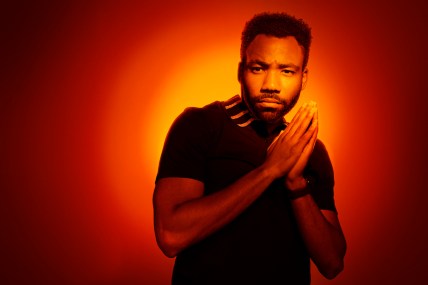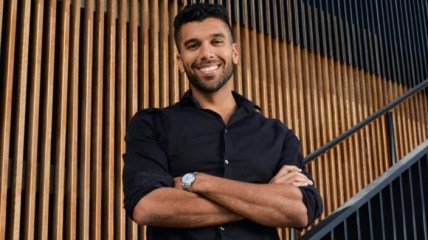Black men’s book club offers chance to learn about wine, their daughters and themselves
The group of professionals includes engineers, artists, attorneys and educators
A new book club in Chicago brings Black men together for camaraderie and conversation about art, books, food, culture and various social issues that impact the community.
Attorney Alex Breland launched the Visible Man Review last January during the COVID-19 pandemic and the group now boasts more than 24 members between the ages of 30 and 75, the Chicago Tribune reports. When he first created the club, he reached out to friends and colleagues to support the effort. The group’s name was inspired by Ralph Ellison’s “Invisible Man.”
“The thought was we’re visible, meaning Black men,” Breland told the Chicago Tribune. “My thought was that’s a cool literary reference and gets to my point of what I think is important, which is figuring out a way for us to be supportive, visible for each other.”

The group of professionals, including engineers, artists, attorneys and educators, initially met on Zoom but now meets the last Thursday of every month in person at Black-owned businesses around the city.
Every month members choose books — most of them focus on the African diaspora — by majority vote. Individual members are also encouraged to recommend books. VMR has read and unpacked titles like “I Came as A Shadow” by John Thompson, “Things Fall Apart” by Chinua Achebe, “Incognegro” by Mat Johnson, Phillip Roth’s “The Plot Against America” and “Three Girls From Bronzeville” by Dawn Turner.
Breland told the Tribune that he recommended one title — Deesha Philyaw’s “The Secret Lives of Church Ladies,” which are short stories that are “highly concentrated on a queer experience” — to get a sense of the group’s sensibilities about the subject matter.

‘Atlanta’ is back and slaying Karens
“This isn’t just about us pounding our chests; it’s about learning,” Breland said. “We should be challenging each other. The beauty of it is we’re talking about the book but talking about art, poetry and other things they read, other things they’ve watched and you realize, ‘Man, these are some dynamic folks. How else would I get this [a safe space for Black men]’?”
Club member Patric McCoy, 75, a co-founder of the nonprofit arts organization, Diasporal Rhythms, and an art collector, noted that the “Three Girls From Bronzeville” sparked an insightful conversation about fathers and daughters.
“Because so many of the guys in the group have daughters, they started talking about the concept of men fathering daughters, issues that I have never heard Black men talk about,” he said. “There’s a whole world of issues that Black men have experienced and until now we have not had the mechanism to talk about those things.”
Breland emphasized that VMR is all “about learning” in a “safe space for Black men.” One young man who embraces the learning aspect is 30-year-old Otis Woods. For him, the VMR experience has helped his thinking on myriad subjects, from understanding the community, to interactions with white society to fatherhood to relationships with Black women.
“I’m really thirsty for learning,” said Woods, a policy fellow with the Leadership for Educational Equity of West Englewood. “I enjoy listening to older Black men and their experiences and how they perceive the world.”
VMR, Breeland said, is a comfortable space where Black men can address all aspects of themselves. “As Black men, we struggle for a way to be everything we are in one place,” he said. “I can be all those things in one place. I can be my attorney self, my father self, an artistic guy. It’s a safe space to do all that, which I think is awesome.”
TheGrio is FREE on your TV via Apple TV, Amazon Fire, Roku and Android TV. Also, please download theGrio mobile apps today!

